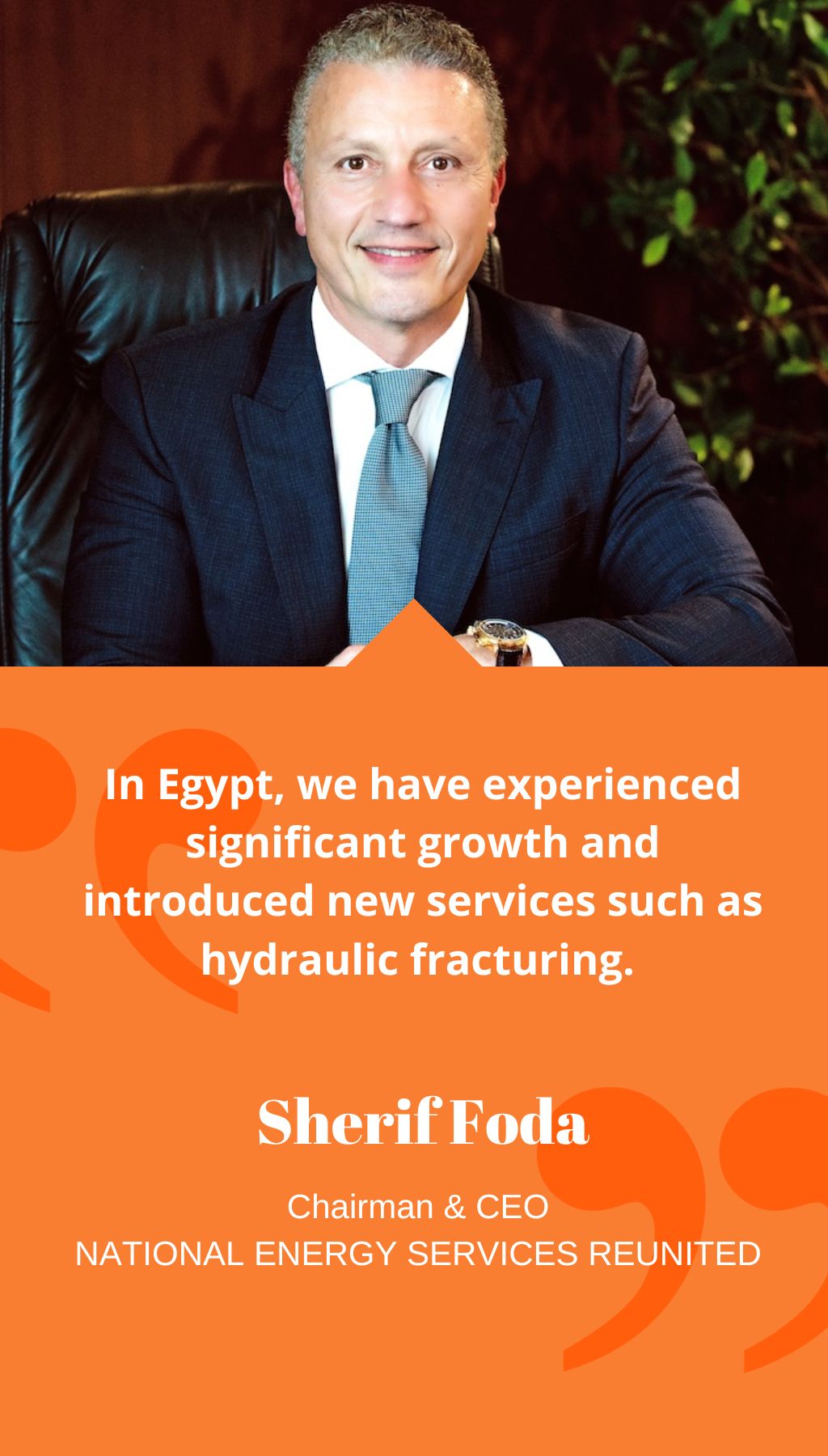
- Egypt | 12 March 2022

Can you elaborate on the company’s history?
NESR has a unique history as the only publicly listed company from the Middle East on NASDAQ. We started as one of the largest companies in the region and began acquiring companies to establish a presence. Currently, we are the largest national company in the Middle East, operating in 15 countries including Saudi Arabia, Kuwait, and Algeria. NESR was formed as a union of all Middle East countries and North Africa to provide energy services.
What significant projects have you been working on recently?
We have a strong presence in Saudi Arabia and Oman, where we secured the largest contract at the Jafurah field, a USD 68-billion unconventional gas project initiated by Saudi Arabia. In Egypt, we have experienced significant growth and introduced new services such as hydraulic fracturing. We completed a chemicals production project in Egypt this year and expanded our capabilities in fracking, production chemicals, and sustainability. We launched our sustainable decarbonization arm, ESG Impact, in January 2020, advocating for responsible oil production with reduced emissions. We believe our region can do more, especially in areas like water scarcity, where we aim to clean and reuse water in various ways.
Can you elaborate on your measures to minimize your carbon footprint and promote sustainability in your operations?
We have developed an open platform for technology, similar to an IT open platform, where innovators can contribute new ideas. We have partnered with eight companies, some of which are not in the oil and gas sector, to work on sustainable initiatives. Our technology includes advanced sensors for emissions measurement, developed in partnership with experts who established emission baselines for Canada and the US. We have also focused on converting heat into power, which has the potential to generate electricity and reduce reliance on diesel, a heavy pollutant.
What challenges are you encountering, and how do you convert them into opportunities?
Education and initial investment are significant challenges. We need to recognize that carbon emissions are a reality and cannot be ignored. Cash flow issues often arise when attempting to start sustainability projects at the beginning of a project. It’s crucial to consider both the lost opportunity of selling gas and the environmental damage caused by methane emissions. If the total cost of these factors is higher than the cost of a solution, it becomes unsustainable and uneconomical for the company. In Egypt, the constrained initial investment is a common challenge in the market.
What is next for NESR, and what would you like to see achieved in the coming years?
Our goal is to double the company’s size in a sustainable manner, similar to the growth achieved in the first four or five years. We want sustainability to be a significant arm of the company, not just a “nice to have.” We aim to continue our research and technology open platform and make a big push in this direction. In March, we opened our first research center in Saudi Arabia, a state-of-the-art facility that is LEED-certified, emphasizing our commitment to sustainable practices.














